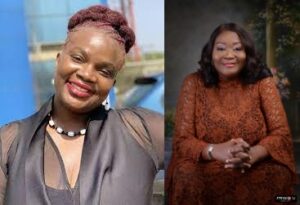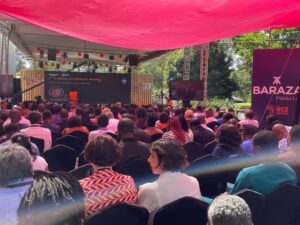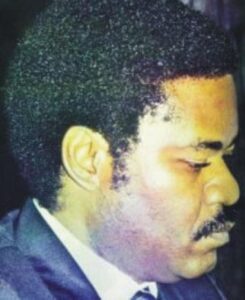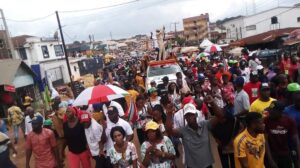BY DR. BISI OLAWUNMI
As members of the Nigerian Guild of Editors converge at Premier hotel, Ibadan, the Oyo state capital, for their biennial conference from February 28 to March 2, 2013, there is need to ponder the state of the Nigerian media. It has to be admitted that the Nigerian media enjoys the accolade of being one of Africa’s most vibrant. Editors have led the media posse, as people’s vanguard, on various occasions to confront authorities when policies are deemed to be anti people, the most recent example being the media’s strategic role in opposition to increase in the price of petrol, that eventually exposed the fuel subsidy scandal. Yet, media performance can be much better. In this regard, the issues which demand attention include fairness and accuracy in the media; rabid political partisanship in editorial content as well as media credibility. There is the issue of poor quality control of editorial content, particularly news stories, which is the flagship product of the media. In all these, the ownership factor is crucial.
However, as the professional leader, the editor is the pivot of any media establishment, in spite of competing forces seeking control of the media. A key competing force is the media owner – public or private. There is the widespread notion that the media owner, like the person who pays the piper, has the right to dictate the tune in editorial content. This is a fallacy, given the media’s primary mandate as a public trust. For the privately-owned media, it is a dual mandate – as a business and public trust. Hence, while the investor has a right to expect returns from a media company as a business, it is for the editor to determine the editorial content that strikes a balance between the investor’s expectations and what serves the public good. It is a responsibility that he should neither abdicate nor compromise. Where the owner is government , such media outfit should function mainly as public service, not business, as is currently the case with the commercialization of news, particularly in radio and television stations owned by federal and state governments. To surrender publicly owned media to market forces is a repudiation of government’s fundamental service to the people and a denial of their rights to know and be heard as such policy shuts out a significant section of the polity. It is a policy the Editors’ Guild should contest.
It is understandable that governments, private owners, special interest groups and even advertisers would seek to influence or control the media in their desire to sell a point of view, to be positively projected to the people through the media or to contain resistance by the masses. The editor is the bulwark against these assaults on the media by power blocs and he can only resist such assaults successfully by imbibing professional integrity. A prerequisite to acquiring professional integrity is to acquire professional training – being a trained journalist with a university degree in mass communication or journalism, a training that emphasizes the ethics of the profession. So, a major challenge for the Nigerian Guild of Editors is professionalizing the position of editor and other editorial cadres and their equivalent positions in the broadcast media. A situation where just anybody can get into media establishment, parade himself or herself as a journalist and even aspire to be editor should not be allowed to continue. With over 100 universities, polytechnics and monotechnics offering courses in mass communication and journalism in Nigeria, there is a pool from which to build a class of professional journalists. A concession might, however, be given to non mass comm. graduates in the media to undertake a post graduate diploma course in mass communication to upgrade their status. A professional journalist is expected to know the limitations of owners in terms of editorial content. There are studies which support this stand. Scholars, including Peter Golding, Noam Chomsky and James Curran, note that while governments and other media owners are inclined to determine the editorial line in newspapers and broadcast stations, “ they exercise these powers within structures which impose limits”. They thus contend with regard to media control that “owners, advertisers and key political players cannot always do as they would wish”. Sadly, some editors, lacking professional integrity, by their obsequiousness give media proprietors the impression that they (owners) can always do as they wish. A trend where some editors tag along, as seeming bag-boys, on the entourage of their proprietors on local and foreign trips diminishes the position of editor.
I often cite the News Agency of Nigeria (NAN) as an example of a credible government-owned media, largely due to the professionalism and integrity of its pioneer Editor-in-Chief, Mr. Femi Adefela, a tradition that has been sustained by NAN’s current managing director, Mrs. Remi Oyo, a former NAN staff, even when she had served in the politically partisan position of media aide to former President Olusegun Obasanjo.
An important issue with editorship is accountability. If editors hold officials of governments and other institutions accountable to the people, if they decry impunity, they also must be accountable to their audience – readers, listeners and viewers. Freedom of the press cannot be freedom to be irresponsible in their editorial content. In this regard, newspaper editors need to subject themselves to the arbitration of the Nigerian Press Council when aggrieved members of the public petition the Council on alleged media excesses. Treating summons from NPC with levity does not accord with media ethics.
A key function of the editor is quality control of media content to ensure fairness and accuracy. It would, however, seem that this function has been largely abandoned given the many embarrassing errors of fact, spelling and grammar in media fare, even on the front pages of newspapers ! In this regard, the media needs government intervention to assist with capacity building for the overall public good. I will end this piece by returning to the issues of professionalism, integrity and monetization in the media with a quote from the 1947 report of the U.S. Commission on Freedom of the Press, headed by Robert M. Hutchins : “ Whatever may be thought of the conduct of individual members of the older, established professions, like law and medicine, each of these professions as a whole accepts responsibility for the service rendered by the profession as a whole, and there are some things which a truly professional man will not do for money”. The Nigerian Guild of Editors need to make a ‘truly professional man’ of editors and other cadres of journalists by initiating a peer review on qualifications and a mechanism to bring erring editors and other journalists to order. Editorship is a distinguished position whose prestige and authority can only be enhanced where ethics, professionalism and integrity rule.
Dr. Bisi Olawunmi, a Fellow of the Nigerian Guild of Editors and Lecturer, Department of Mass Communication, Bowen University, Iwo, is a former Washington Correspondent of the News Agency of Nigeria. Email: olawunmibisi@yahoo.com SMS ONLY : 0803 364 7571





